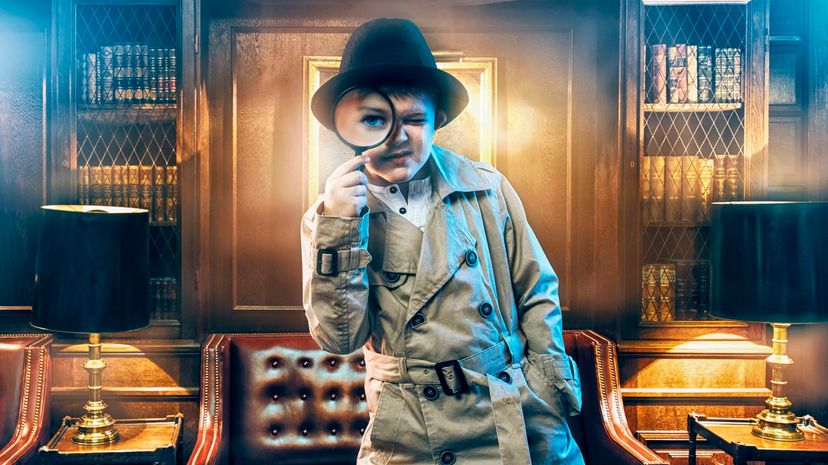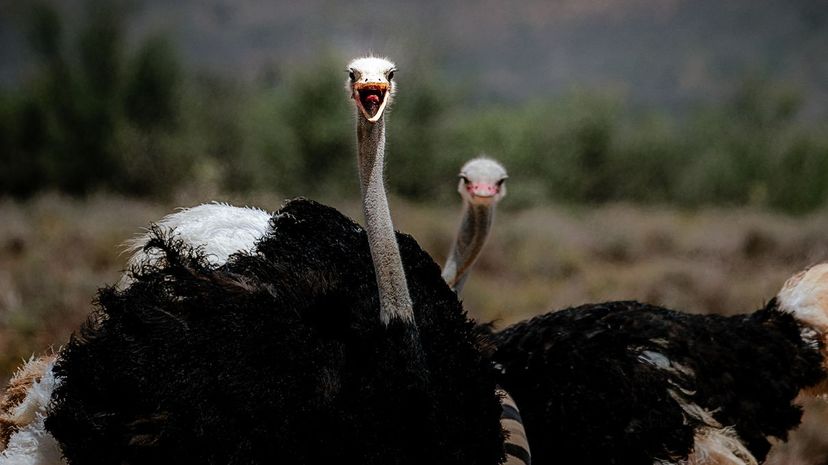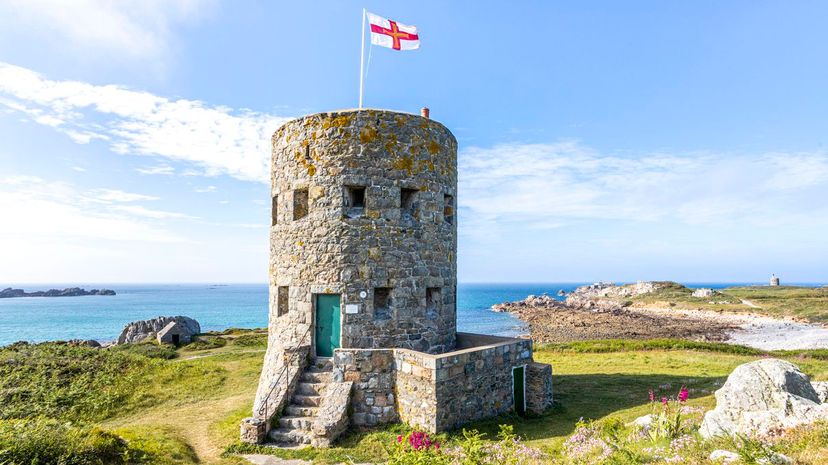
About This Quiz
Language is not controlled by dictionaries and grammarians, though students of language are often made to feel that way. Instead, dictionaries and grammarians track the logic that holds a language together and the many meanings that words accrue as they pass through time. In other words, the speakers of a language create the language. The study of the origins of words, known as etymology, attempts to follow how words come into being and how the friction of historical events shapes their meaning.
For instance, Old English, the oldest ancestor to our Modern English, came into being when Germanic tribes migrated to Britain in around 5 A.D. The clashing of cultures created a need for unique language. Another clash, the Norman conquest in 1066, drastically shaped the language to such a great extent that it ushered in the next era of English, Middle English. With the Norman invasion, Latin and French influences entered the spoken and written language. The Renaissance fascination with ancient languages, like Greek and Latin, marked the beginning of the shift to Modern English.
The words we use are still changing, of course, with hundreds being added to the dictionary each year and sanctioned as accepted English. In 2019, Miriam Webster added "screen time†and "unplug,†among 638 others. As these words show, the changing language reflects the dramatically shifting cultural landscape. Take this quiz and test your knowledge of the shifting sands that formed these words!

The act of going "berserk,†where a person runs around in a frenzy wrecking their surroundings, hails back to the ancient Norse warriors who were said to dress like a bear, "bjorn,†with a "serkr,†coat. These warriors channeled the power of the bear to attack the enemy ferociously.

In 1882, the word "jumbo†began to be used generally to refer to something unusually large. The reference pointed back to the London Zoo's enormous elephant, Jumbo. Scholars speculate that this name may have originated from a West African dialect where "jumbo†meant elephant.

The Black Plague, or the Black Death, wiped out nearly 25 million people, almost a third of the European continent's population. To try to stop the spread of disease, passengers aboard ships in Italian ports would be detained for 40, or quaranta, days before being allowed on the shore.
Advertisement

The word "hazard†comes to English through the Arabic language family, via the Spanish word "azar,†for an "unfortunate card or throw at dice.†The Arabic influence on the Spanish word reveals the profound mixing of Spanish and Arabic culture in the Middle Ages. That we now use the word for taking a chance shows the use of metaphor in language building.

The word "haze" does not date back much earlier than the 18th century in England, where the word originally referred to a state of confusion and vagueness. It was then used to refer to an opaque environment. Tellingly, the English language is the only language to have three words - haze, mist, and fog - that differentiate levels of opacity.

The word "disaster,†which we now generally apply to stressful, unfortunate events, originates from the Italian word "disastro,†which literally meant "ill star.†The word came from the Greek understanding that a bad alignment of stars and planets contributed to catastrophic events.
Advertisement

A speaker who is "fluent†in a language shares the original meaning of "flowing freely, like a river,†which the original Latin word contained. This sense of "fluid†and "river†adds texture and imagery to the concept of fluency - that language speakers can adapt and flow without effort in communication.

"Clue†used to mean "a ball of yarn.†The sense of the word shifted to mean anything giving an indication or direction in a complex situation, thanks to the myth of Theseus and the Minotaur. In the myth, Ariadne gives Theseus a ball of yarn when he is sent into the labyrinth where the Minotaur dwells. He unwinds the yarn as he goes and is able to follow the clue to get out.

In Old English, the word "woman†originally came from a compound of "wif,†woman, and "man,†human being. Oddly, the language joined together a word which already meant a female human to the masculine word for a human being.
Advertisement

The word "mermaid†has ancestors in Old English, in "merewif,†which meant water-witch. In Middle English, mermaid took on "maid,†which meant single woman. Early legends of mermaids have negative connotations, where the mermaids usually end up harming those they encounter.

The Old English word that eventually became "bury†was "byrgan,†"to enclose in a grave or tomb.†This word was related to the Proto-Germanic word, "beorgan,†"to shelter or protect.†The ancient word contains the meaning of sheltering the dead from the elements.

"Amateur,†a word that signals someone who is interested in an art form but is not a practitioner, comes from the Latin "amator†for "lover or friend.†Interestingly, the word, which originally showed love for something, now connotes a lack of expertise.
Advertisement

"Heresy†generally describes a view that departs from the accepted norms, usually of religious doctrines. The word came from the Greek word "haireses,†which meant choosing for yourself. Taking your own choice and departing from the norms is later seen as problematic in dogmatic settings.

The word "nice†has morphed dramatically since the Middle Ages. In modern English, the word most nearly means "kind,†but in the 13th century, it carried the meaning of "foolish and ignorant.†The term became more ambiguous before making a shift toward the positive.

"Innocent,†which usually means the state of being without guilt, is composed of the prefix in - not and the root nocent, from nocentum - harm. So, the original word has more to do with a state of not having done harm rather than being guilt-free in any legal sense.
Advertisement

While today the word "giddy†connotes happiness to the point of being disoriented, it originally focused heavily on the disorientation, meaning "insane, mad, or stupid.†It could even be related to the state of being possessed. Since the 16th century, though, the meaning of happy elation has attached to the word.

Even in Old English, the word "hope†has been filled with theological connotation, meaning a sense of confidence in the path of salvation. Only much later, around the 13th century, did the broader application of hope as a "wish†for something come into use.

In Ancient Greece, the population used to vote on whether a person should be banished from the community by casting a vote on a piece of broken pottery called an "ostrakon.†If the community agreed that the person should be cast out, the person was then "ostracized.â€
Advertisement

"Loopholes†now provide ways to avoid paying full taxes, but, back in the 13th century, they gave protection to archers who could shoot through the small hole in the fortress, leaving little opportunity for the enemy to shoot back.

The word "weather†has, from its Old English roots, described the "air, sky, breeze, or storm,†but its Proto-Germanic root, "wedra,†refers to "wind.†This makes sense, as the wind does bring in the changes in weather that humans experience.

Since Christianity has had an influence on the language, even in Old English, the word "holy†has meant "sacred or consecrated, set apart.†Before Christianity left this imprint on the language, though, the term had more to do with "health†or wholeness, something which should be left intact.
Advertisement

"Common,†which now can mean either something plain or something belonging to all or a group, comes from the Latin roots ko-moin-ni, meaning "held together." The sense of "plain†came in the 14th century and seems connected to the idea of just being one among many.

The Old English "wyrre†had the same meaning of "large-scale military conflict†that we associate with war today. Its Germanic ancestor, though, "verran,†meant "to confuse or perplex,†defining war by its effects rather than its actions.

The modern word, "lunatic,†which refers to an insane person, derives from the Latin "lunaticus,†meaning "moon-struck.†This word had connotations of insanity from its earliest origins and shows the early belief in an association between madness and moon phases. This connection also exists in Germanic and Greek languages.
Advertisement

In Old English, if you were "cwic,†it wasn't really a compliment, just a statement that your heart was beating. The modern meaning, though, has been associated with the word since the 12th century, when it took on the meaning of rapid, from the connection with being full of life.

The word dinner, which some English speakers use to describe the final meal of the day, and others use for the mid-day meal, is related to the Latin "disjejeunare,†to break a fast, or breakfast. By the 13th century, it was used to describe the main meal of the day.

The derogatory appellation "dunce†has been used since the Renaissance to put down a person's ability to think clearly. Originally, though, the meaning had a very specific target - followers of the philosopher Duns Scotus, whose ideas had fallen out of popularity.
Advertisement

"Favor,†a root of the word favorite, came to mean approval or praise by the 15th century. In the 13th century, though, the earlier use of the word referred to beauty or attraction. This draws a clear connection with the sources of praise and approval.

"Horse†remains essentially unchanged from the Old English, the Germanic word "hors.†Some scholars believe the word to come from the Proto-Indo-European root, "kers,†for "run," but this is not a certainty.

Surprisingly, though the modern inflection of "horror†has to do with intense fear, the earliest meaning, in the 14th century, describes a feeling of "disgust.†From that feeling of shrinking back, the word morphed to mean the experience of dread. The fear elicited by horror has disgust at its root.
Advertisement

The world "elation,†which is commonly used to describe an experience of high spirits, originally referred to someone with a heightened sense of themself. The sense of arrogance shifted in the 18th century to mean lifted spirits.

The verb "hallucinate,†which now means to experience something in the senses that is not actually there, derives from the Latin word, "alucinare,†to wander about in the mind, or to dream. It's the original trip, in other words.

The adjective "ineffable†describes that which cannot be described. In the original Latin, it means "not utterable.†Somehow, in the early 19th century, the word "ineffables†came to be used to describe trousers.
Advertisement

"Epoch†has meant a "fixed point in time†since its Greek origins. That original word comes from the Proto-Indo-European word, epi - on and ekhein - hold, or something held in place. The meaning of a period of time came about in the 17th century.

In the 14th century, the word "curfeu†referred to a signal that told everyone to put out their lights and fires. It literally meant "cover fire.†Lights out! The modern use of the word as a name for putting limits on where someone can be at certain hours dates back to the 19th century.